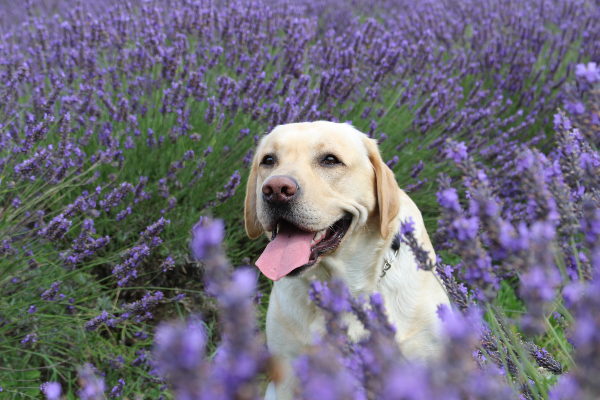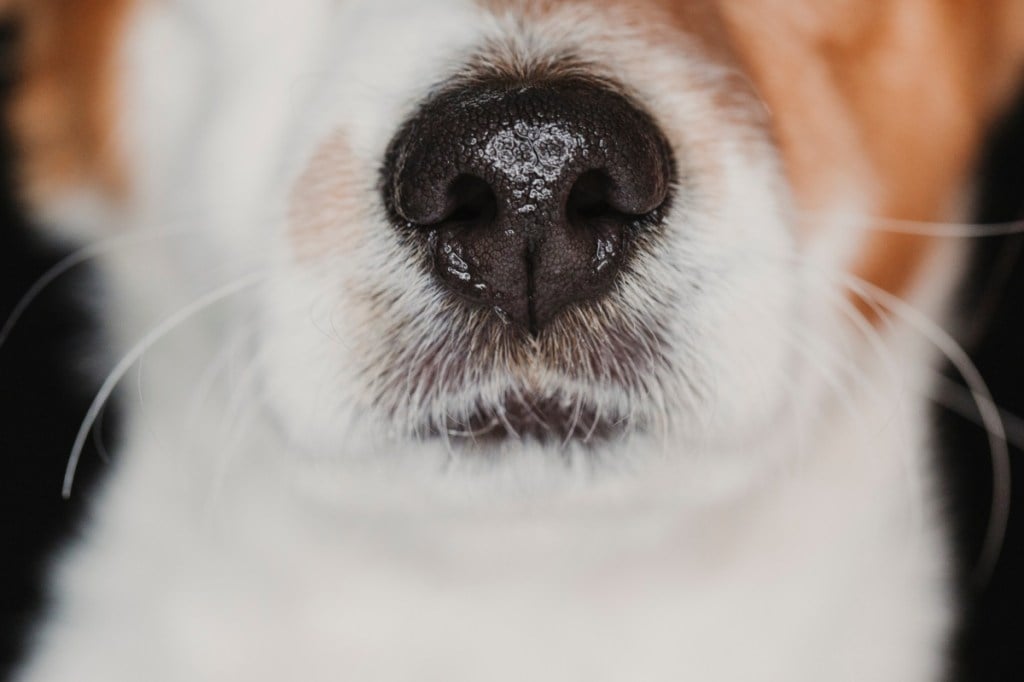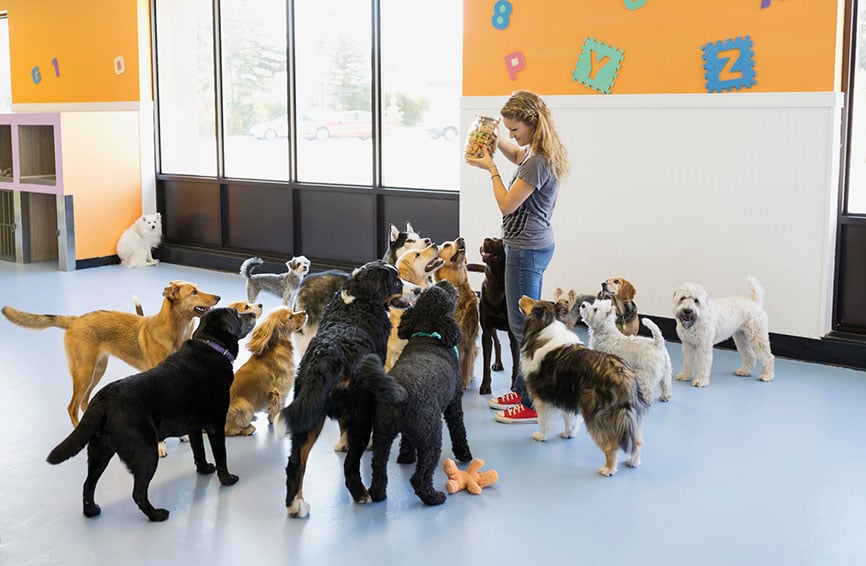Table of Contents
Key Takeaways
- Lavender contains a small amount of linalool, which is toxic to dogs and cats.
- Mild exposure to lavender is not generally harmful and may help with anxiety, depression, and stress.
- Lavender poisoning is possible and may cause vomiting, reduced appetite, and other symptoms.
- Aromatherapy is safer than giving your dog lavender essential oil to ingest.
Even if you’re not fully integrated into the essential oils trend, you may already be well versed in the soothing, calming powers that lavender can have on people. Numerous scientific studies have been conducted to test these claims, such as this one, which conclude that there’s evidence for the “relaxing effect of inhaling lavender oil.” Lavender oil, and the plant itself, can even be safely ingested by humans to achieve similar calming effects.
The question we’re addressing today is whether it’s safe to administer lavender — in all its forms — to our canine friends and if the same benefits may apply. Here’s what you need to know.
Is Lavender Safe for Dogs?
The answer to this question is unfortunately not a simple as a straightforward yes or no. Lavender contains a small amount of a compound called linalool, which is toxic to both dogs and cats. Linalool is found in such small concentrations, however, that toxicity is rarely an issue. Problems arise only if a dog ingests a very large quantity of lavender.
Symptoms of lavender poisoning may include vomiting, inability to defecate, a swollen and tender abdomen, reduced appetite, and fever. If you suspect your dog has been poisoned by lavender, consult your veterinarian (or an emergency veterinary hospital if after-hours) immediately. Treatment varies, but may include the administration of intravenous (IV) fluids, supplemental oxygen, and antihistamines.
Therapeutic Uses of Lavender Essential Oil for Dogs
A handful of products and websites claim that lavender essential oil — when inhaled by your dog rather than ingested — can reduce anxiety, depression, and stress. Some suggest adding a few drops of the oil to your dog’s collar or bedding, or simply diffuse the scent throughout your home.
While the scientific literature on this is pretty scarce, a few scientific studies have concluded that lavender aromatherapy may, indeed, help dogs relax. For example, this study from 2006 states that “dogs spent significantly more time resting and sitting and less time moving and vocalizing” when exposed to the scent. This study from 2005 reported similar findings.
At the end of the day, mild exposure to lavender aromatherapy is unlikely to harm your dog, and it may even provide some positive effects. Be sure that your dog does not have direct access to the oil itself and does not ingest it.
If your dog struggles with anxiety or restlessness on an ongoing basis, other treatments may be more effective. It’s worth talking to your vet about your dog’s anxiety, in order to create the most effective treatment plan.
Conclusion
While lavender is generally considered safe for your pup, it still doesn’t earn a full-blown seal of approval. It is important to keep an eye on your dog if he or she has access to fresh lavender outside, and consult your veterinarian immediately if you spot any signs of poisoning.
Giving your dog lavender essential oil to ingest isn’t recommended, but aromatherapy may prove helpful. If you feel your dog needs to be treated for anxiety or stress, bear in mind that other treatments may be more effective over the long term. Speak to your veterinarian about what’s available and follow their recommendations.
The content is not intended to be a substitute for professional veterinarian advice, diagnosis, or treatment. Always seek the advice of your veterinarian or other qualified health provider with any questions you may have regarding a medical diagnosis, condition, or treatment options.
Want to make sure your pets are covered from those unexpected illnesses or injuries with no limits on payouts? Get a quote and make sure you’re covered for those dog and puppy mishaps and unpleasant surprises.









